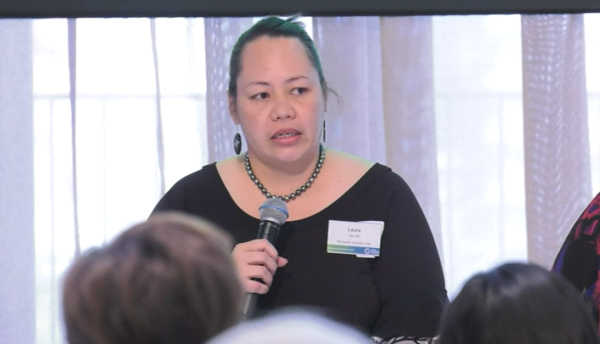Posted on 04 November 2022
As a way forward to "do development differently", the Pacific Islands Association of Non-Governmental Organizations (PIANGO) reached out to the Council for International Development (CID), for help to connect them with Te Ao Māori economic development and business expertise, to promote locally owned development, in the spirit of Tino Rangatiratanga, or self-determination.
CID convened a hui in March 2022, that brought together leaders in Māori business, Pacific civil society and business, iwi leadership, Government, and the aid sector, to share their experiences and their ideas.
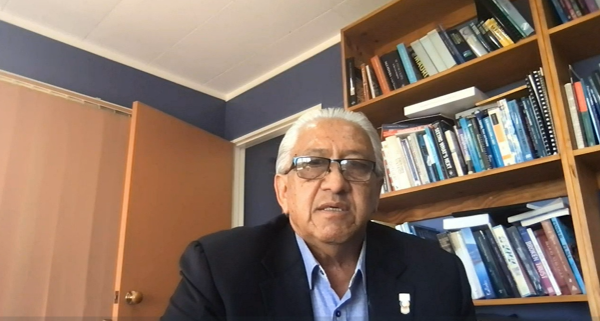
Richard Jefferies, CID Conference 2022
Speaking at the Council for International Development annual conference Māori Development Consultant, Richard Jefferies, spoke about the hui, and opportunities for Māori and Pacific to work together towards Pacific Regional Development, saying:
"The ease with which we connect as whanaunga across the Pacific. How similar our histories of colonisation and marginalisation often are, and therefore how quickly we can become familiar with each other, in a high-trust environment. When we come together within each of our tikanga, the whole process is very different.
As a Māori development consultant whose been working here in Aotearoa with Māori and Pacific organisations for nearly 30 years in a wide range of sectors, I can see now how the pathway for development will be similar for Pacific nations and their peoples, as it has been for Māori – not the same – but similar. I have also been working with indigenous peoples in other countries: Australia; Canada; the USA; Chile; and others – and there was always a keenness to work together, but a lack of government support to facilitate this work.
I’m really pleased that the Council for International Development has sponsored this important work. And the feedback from the Tātou Tātou fono earlier this year, hosted by CID, reiterated the call. And the call is: Pacific peoples want the opportunity to work with their Māori cousins more, as they find tangata whenua led strategies and solutions to their development. In turn, Māori are keen to support Pacific nations and their peoples in their journey – knowing too that there will always be two-way sharing and learning for mutual benefit. Most importantly, this will happen in a way that incorporates and develops within the Kaupapa Pacifika and Kaupapa Māori framework.
The call from the fono was crystal clear. Pacific nations and their peoples want to work more with their own, with each other, and with Māori, in the development of their economies, nations, and peoples.
The call I heard that day was an emotional heartfelt call: let us work in a Pacific way, let us work with our Pacific and Māori cousins. In essence – for Pacific peoples, by Pacific peoples, with Māori support."
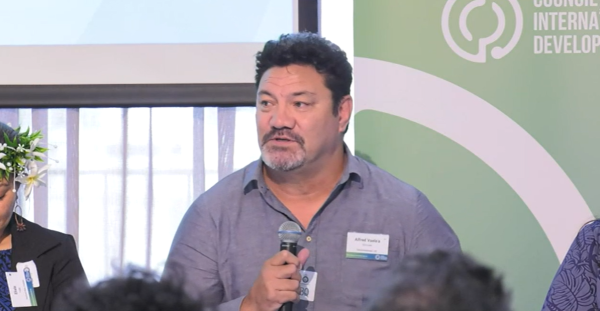
Toleafoa Alfred Schuster, CID Conference 2022
Speaking on the Tātou Tātou conference panel, Toleafoa Alfred Schuster, from Tutulumanulagi Ltd, said:
“From a Pacific perspective what I’d like to draw on is a call to action or a set of drivers that we heard from the keynote speakers at the 2021 CID annual conference, when Prime Minister, Mark Brown and Prime Minister Fiamē Naomi Mataʻafa, gave us a sense of what doing development differently might need to look like – or should need to look like from a Pacific perspective.
One thing that Prime Minister Brown said was – ‘let’s go back to some old principles of aid effectiveness’ those are the things the still resonate with Pacific governments in the way that they’d like to see their engagement with their partners. So, things like, being driven by the leadership and ownership of Pacific governments or their Pacific partners.
Covid suddenly has made us realise that we need to harness this local capability, but we know very well it’s been there forever. Covid has only just shone a light on it, again, it’s not a new light, it’s an ongoing light that’s been shone on local capabilities and expertise that exists in our Pacific region. Prime Minister Brown was reinforcing that point that this idea of leadership and ownership is based on not just an alignment of your priorities to theirs but also drawing from the expertise that’s resonate in the Pacific… If we are genuine about resilience and relationship on top of partnership then the power dynamic [between donors and recipients] needs to be addressed.”
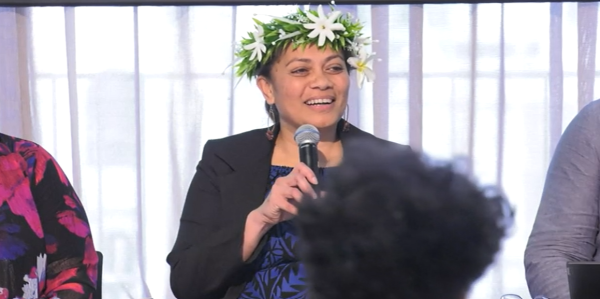
Eliala Fihaki, CID Conference 2022
Eliala Fihaki from Tearfund New Zealand and the Pacific Koloa Collective said:
The hui is call for balancing the power, for driving development locally. After the hui we came up with 12 outcomes that came out from the hui and further consultations… From the outcomes we mobilised 6 sector groups: Tourism & Hospitality; E-Commerce and Finance; Agriculture & Fisheries; Women in Business; Digital/ICT; Pacific Consultants.
From the talanoas with these groups we came up with 4 broad themes: Institutional Barriers and Opportunities; Networking and Connecting the Dots; Strengthening Maori and Pacific Identity; Coordination and Monitoring.
There is a strong emphasis to be more intentional in the way we conduct business and development in the Pacific, responding to PIANGO’s call. So it is time for us to review and reimagine our approaches – and this echo’s the narratives from the Pacific Island Forum. And I know a lot of development donors are also on this shift – to do development differently.
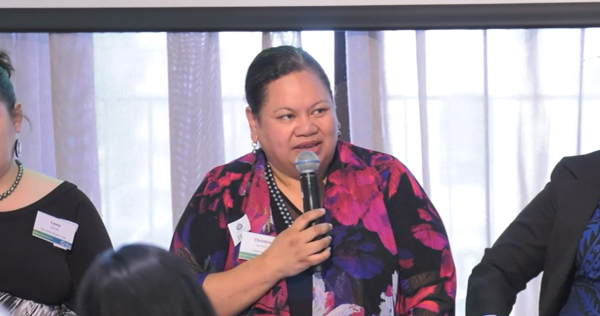
Christine Nurminen, CID Conference 2022
Christine Nurminen from Oxfam Aotearoa and the Pacific Koloa Collective, said:
"I’m here to talk about Pacific Koloa Collective, in terms of how we provide a safe space for Pacific development practitioners – we have been on a journey. We have a framework – an indigenous framework, that has been tested, processed, fought over, but we are now in implementation.
Our kaupapa is to shift the power dynamics in the international development sector. In our journey we developed a framework call the Pacific Koloa Framework. The word Koloa is not new to the region, it’s centuries old.. it’s meaning is to be in abundance – we are resilient."
Laura Keil-Hall, CID Conference 2022
Laura Keil-Hall from the The Pacific Business Hub said:
“The work that has led to the establishment of The Pacific Business Hub started 10 years ago when I established the Samoan Business Network. At the time there was a lack of information, data, about Pacific businesses. Instead of me looking at starting a Pacific Business Network I decided to start the Samoa Business Network because that is who I am, it’s what I know, and I wanted to start from there and eventually develop out other ethnic-specific groups.
Richard Jefferies mentioned earlier today – Maori and Pacific are similar but we are not the same, and that’s the same of Pacific peoples. We’re very similar in our values and beliefs and culture – but we are not the same. So establishing a Samoan Business Network, was the right thing to do. I cannot establish the Tongan Business Network, and come and tell the Tongan’s how to run businesses.
Over the last 10 years, I’ve listened, and I’ve understood, and I’ve now implemented – through the establishment of the Pacific Business Hub. The vision of the Pacific Business Hub is to enable, empower, and enrich… when the ocean’s rise we all rise – it doesn’t matter how big or small your boat is, if the oceans rise we all rise.”
------------------------------------------------------------
Ngā mihi to Afamasaga Jackie Curry, from Spacific Consultancy, who helped convene the Tātou Tātou group and Frieda Crawford from the Wellington Pasifika Business Network, who chaired the panel.

